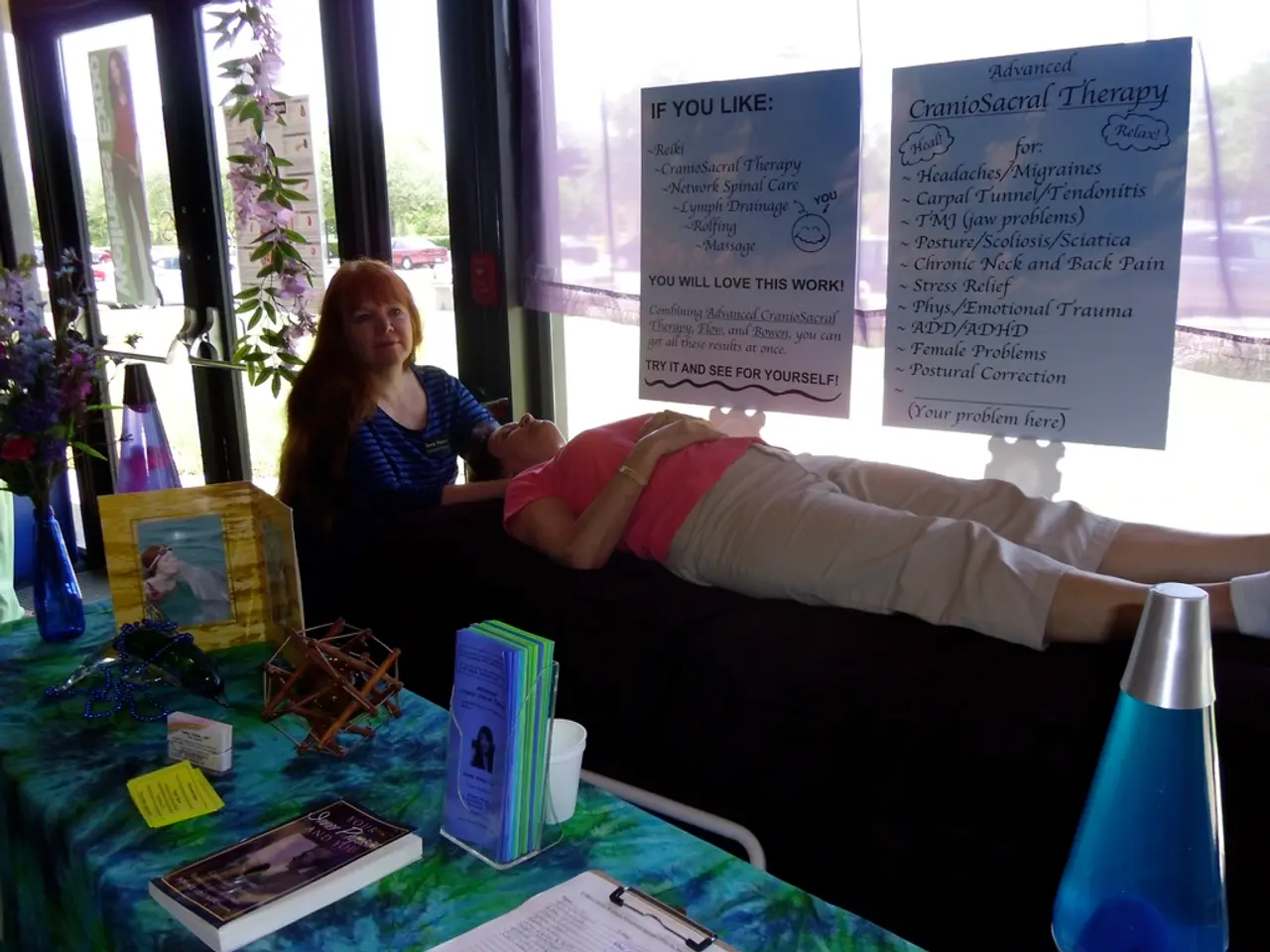Adopting Daily Healthy Strategies Minimizes Daily Anxiety Levels
In a groundbreaking study published in the journal *Emotion* in 2025, researchers led by Chayce R. Baldwin and colleagues found that individuals who use diverse combinations of healthy emotional regulation strategies daily experience reduced anxiety over time [1]. The study, conducted during the peak of the COVID-19 pandemic, tracked 422 participants across two 14-day periods in April and September 2020.
The research emphasizes the importance of developing a versatile emotional toolbox, focusing on building a broader repertoire of strategies [1]. Over the two-week periods, participants on average used three to four strategies daily and about nine different ones throughout the study. Remarkably, around 74% of these strategy combinations were unique to individual participants.
Anxiety, characterized by worry, fear, and unease, can severely disrupt daily functioning and overall mental health if poorly managed [2]. The study explored anxiety as a significant emotional challenge, particularly intensified during the uncertainty of the pandemic. Individuals experiencing greater psychological distress tended to employ more strategies overall, but often gravitated toward less healthy options [1].
The findings offer actionable insights, especially valuable during prolonged stressful events like pandemics, economic downturns, or personal crises [1]. When distressed individuals managed to integrate healthy coping strategies, their anxiety reductions matched those of their less-distressed peers [1]. Combining activities like exercise, engaging in rituals, and seeking physical comfort or advice from others was particularly effective in reducing anxiety [1].
However, relying heavily on unhealthy coping mechanisms like alcohol consumption or suppression techniques typically increased anxiety [1]. The study suggests that combining multiple emotional regulation strategies may be more effective than relying on a single strategy [1].
The study's insights also highlight areas needing further exploration, such as how personal and contextual differences influence strategy effectiveness [1]. To create effective combinations, individuals might consider incorporating a range of strategies such as mindfulness and relaxation techniques, physical activity, social support, cognitive reappraisal, and emotional expression [3].
Building a versatile toolkit and using these strategies in a flexible manner can help individuals effectively manage anxiety in their daily lives. The research advocates the use of diverse, healthy, and adaptable strategies to effectively navigate anxiety in daily life [1].
References: [1] Baldwin, C. R., Schertz, K. E., Orvell, A., Costello, C., Takahashi, S., Moser, J. S., Ayduk, O., & Kross, E. (2025). Managing emotions in everyday life: Why a toolbox of strategies matters. Emotion, 25(5), 1122-1136. https://doi.org/10.1037/emo0001492 [2] Anxiety and Depression Association of America. (n.d.). Understanding anxiety disorders. Retrieved from https://adaa.org/understanding-anxiety [3] American Psychological Association. (n.d.). Stress management: Strategies for coping with stress. Retrieved from https://www.apa.org/topics/stress/manage
- In the study published in Emotion journal in 2025, researchers highlighted that a diverse array of emotional regulation strategies can help reduce anxiety over time, especially during stressful events like pandemics.
- The study focused on building a broader emotional toolbox, advocating for a versatile repertoire that includes various strategies like exercise, social support, mindfulness, cognitive reappraisal, and emotional expression.
- The findings revealed that combining strategies like engaging in rituals, seeking physical comfort, and advice from others was particularly effective in reducing anxiety.
- On the contrary, relying heavily on unhealthy coping mechanisms, such as alcohol consumption or suppression techniques, typically increased anxiety levels.
- Individuals experiencing greater psychological distress were found to employ more strategies overall, but often gravitated toward less healthy options.
- The study also pointed out the need for further research to explore personal and contextual differences that influence strategy effectiveness, aiming to help individuals create effective combinations for managing their anxiety efficiently in their daily lives.




